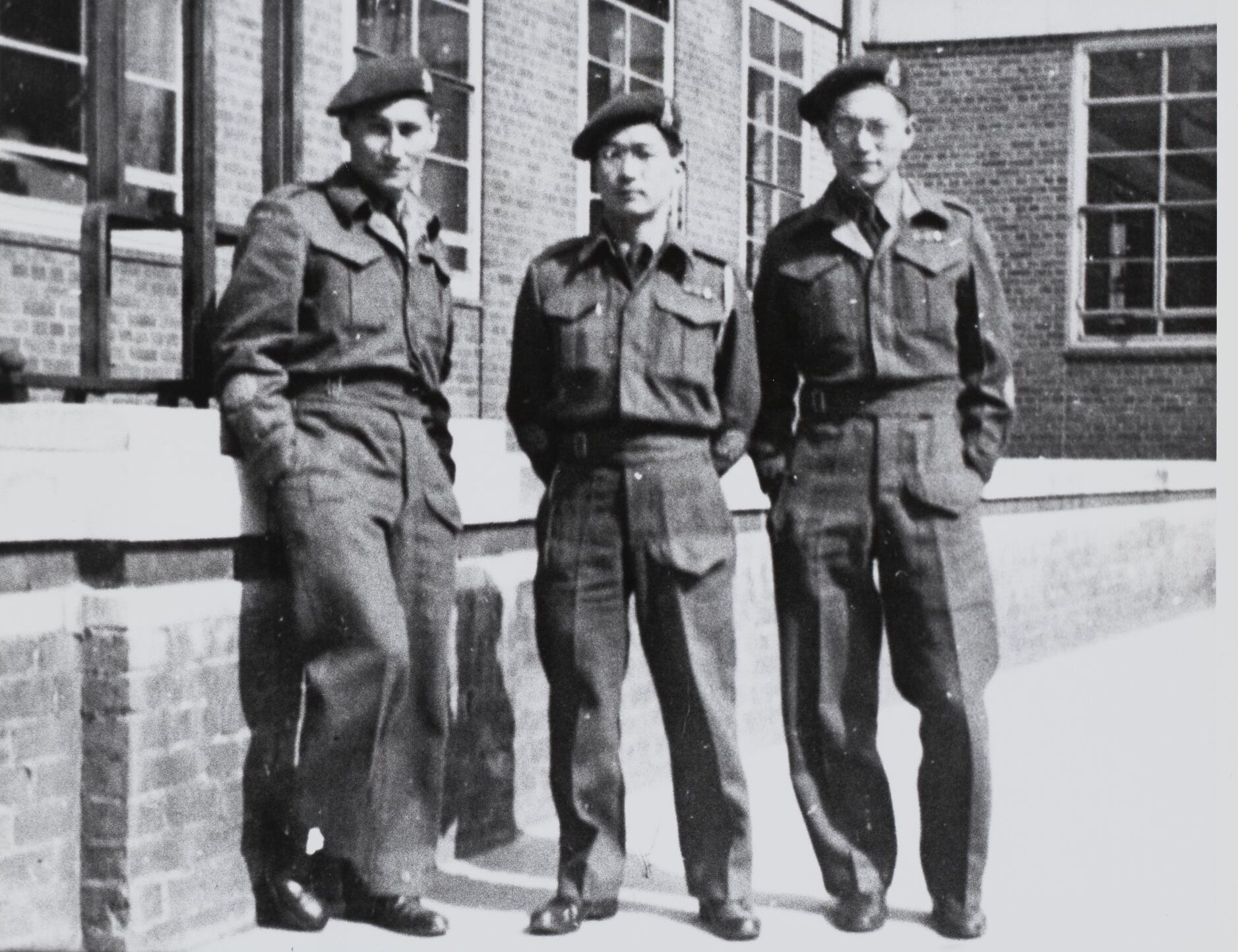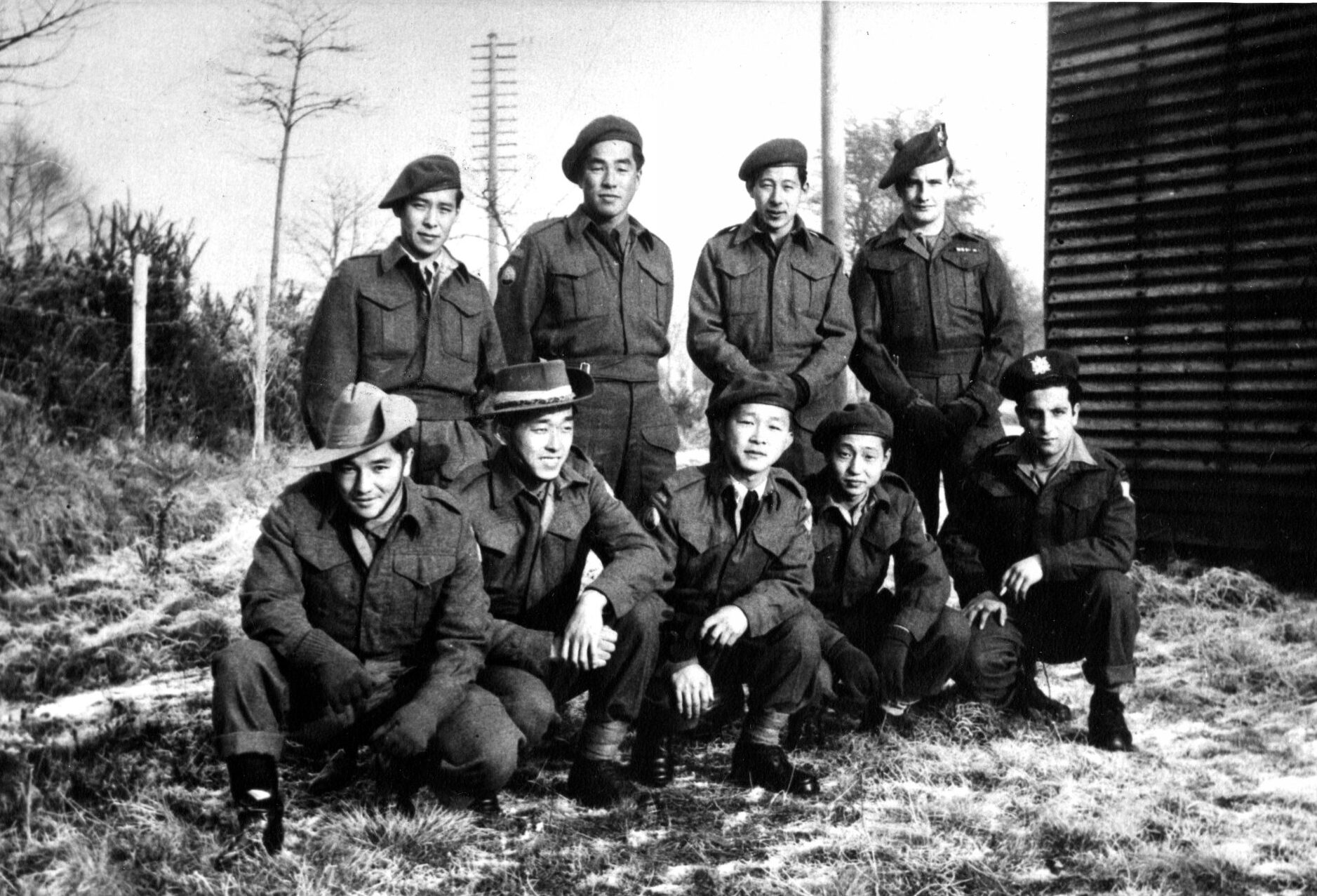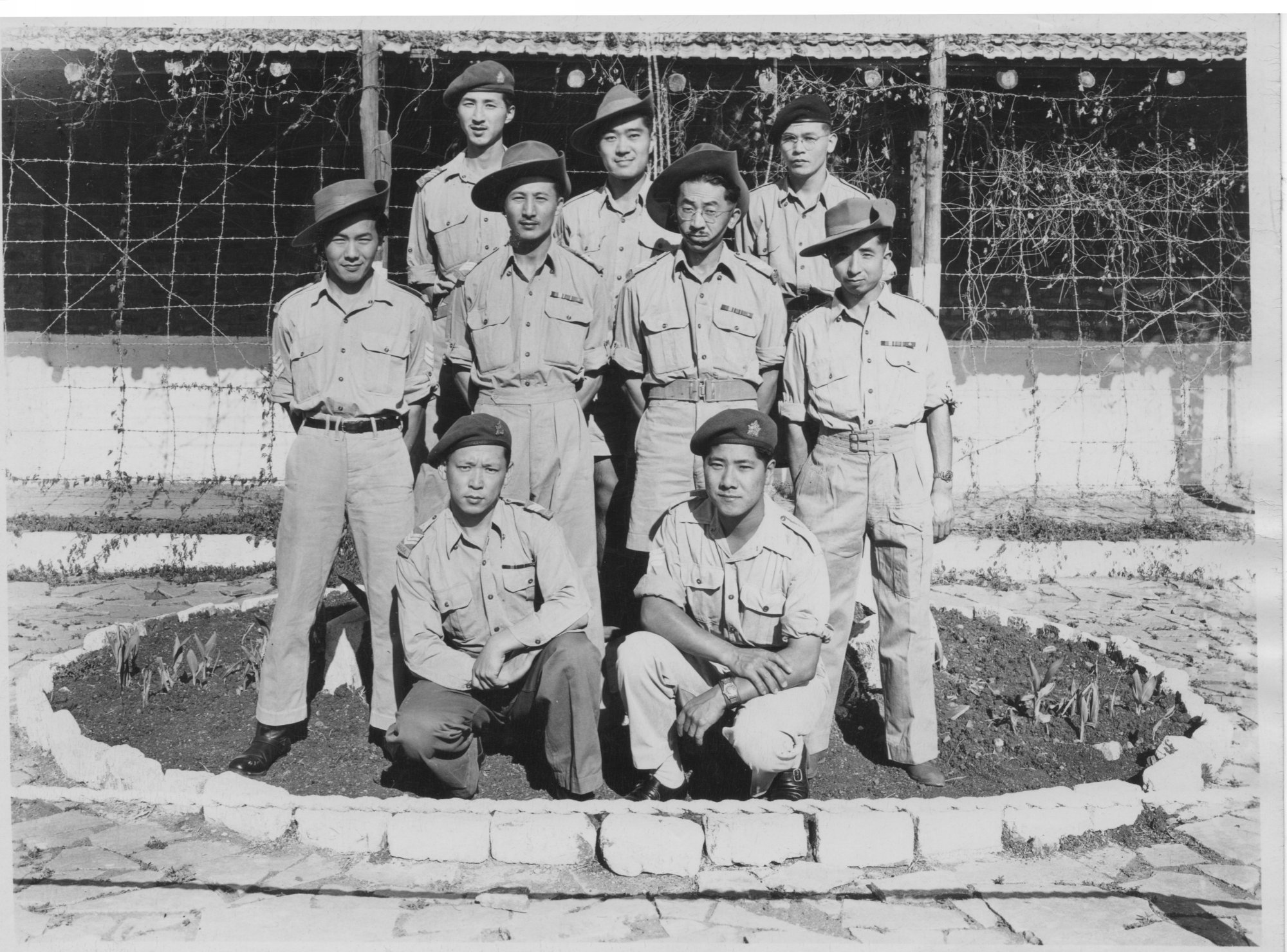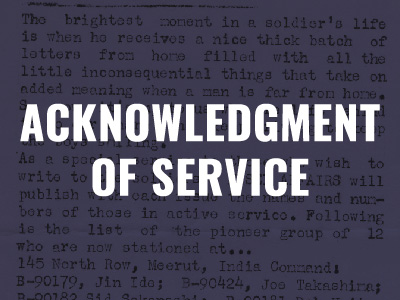END OF THE SECOND WORLD WAR
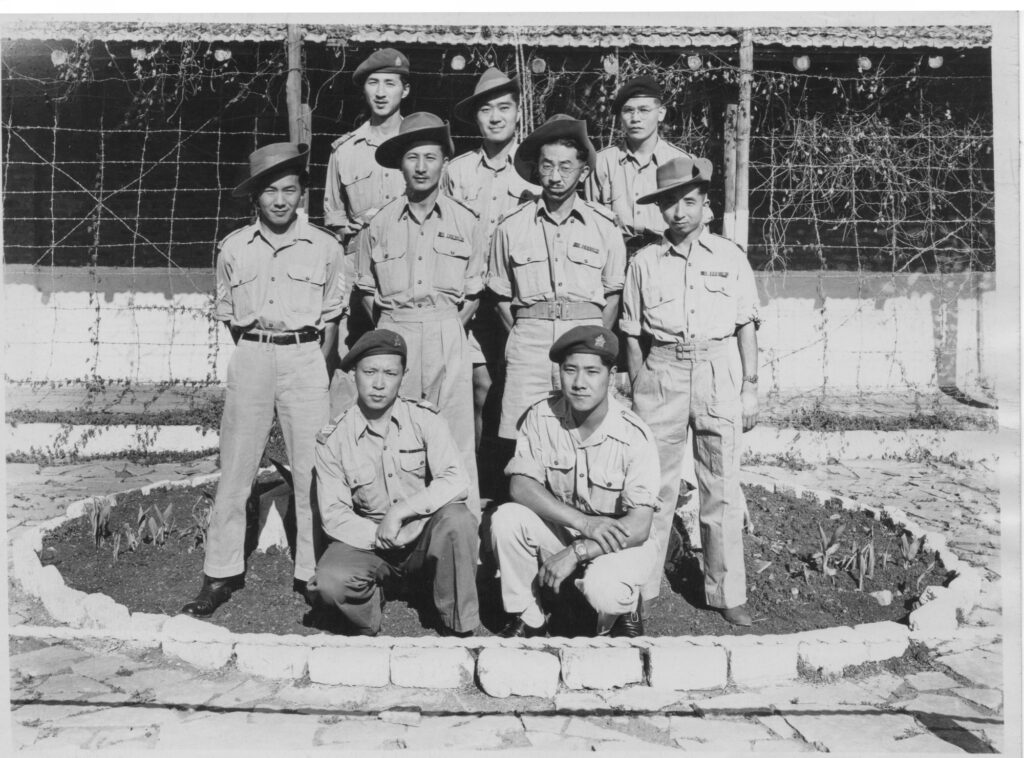
Albert Takimoto was in the first group of Japanese Canadians who was enlisted by Captain Mollison to served in the British Army. He had been the first to be contacted by Mollison, and was the first volunteer in the group. A graduate of UBC, he was also designated as the leader of the group of twelve (Ito, p. 235, Theurer, page 240). He worked as a radio broadcaster at SEAC in Ceylon. He reported news items in Japanese four times at day (Ito, 1984, p. 236). The broadcasts were aimed at Japanese troops in the field (Theurer and Oue, 2021, p. 240) in Burma and Thailand. When Albert learned about the apocalyptic bombing of the city of Hiroshima on August 6, 1945, he used a dictionary to quickly translate the words “atom bomb” into Japanese and decided on genshi bakudan for use by Radio Ceylon. That was the first use of the expression genshi bakudan and it has become the accepted Japanese term (Theurer and Oue, 2021, p. 240).
Edgar Iwamoto, who was in the second nisei group sent to India, was shocked to learn about the fate of Hiroshima, where he had lived from the ages of four to sixteen with his aunt. He was sure that his aunt, friends, neighbors, and relatives in the city were all dead (Ito, 1984, p. 246).
After a second catastrophic bomb was dropped on Nagasaki, the Emperor of Japan announced on August 14, 1945 in a radio broadcast that Japan should surrender. The Second World War came to a sudden end.
Nisei Affairs, a journal published by The Japanese Canadian Committee for Democracy, printed an editorial on Victory in Japan Day, expressing relief on Japan’s surrender and the effect of the war on Japanese Canadians: “Ever since the Japanese war machine invaded China, we Japanese Canadians have lived under the shadow of her guilt even though we had no part in her crime (Nisei Affairs, 1945, p. 2)”
As the war ended, the work of the nisei in southeast Asia shifted to liaising with Japanese soldiers in locations that Japan had previously captured. Nisei had to accept official surrenders and intercept soldiers who had committed war crimes (Moritsugu, 2015); they had to question surrendered personnel to determine what the Japanese had learned about the work and plans of the Allies.


